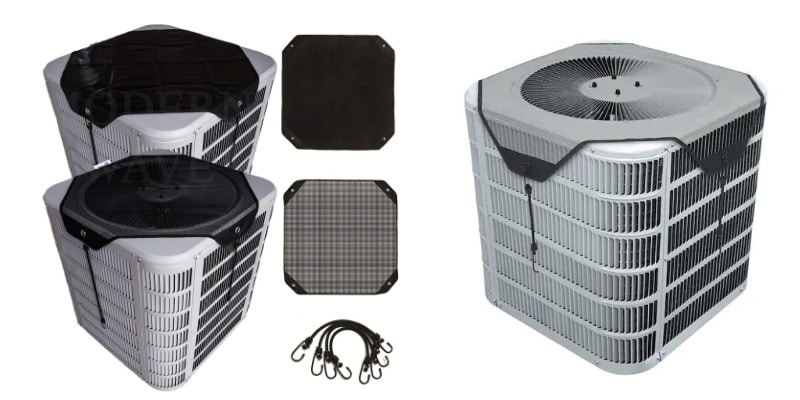Turning on your air conditioner with the cover still on might seem like a small oversight, but it can have significant implications for the health and functionality of your unit. Air conditioners are designed to facilitate the exchange of heat and condensation efficiently. This process is critical for cooling your space effectively. When airflow is restricted, as with a cover in place, the appliance’s components are put under unnecessary stress. Let’s dive deeper into why this is a bad idea, how air conditioners work, and what considerations you should make regarding AC covers.
The core functionality of an air conditioner relies on its ability to exchange heat. Air conditioners absorb heat from indoor air and release it outside, cooling your home. This heat exchange is facilitated by airflow through the unit’s components, particularly the condenser coils in the outdoor unit. When these coils are covered, the unit cannot effectively disperse heat, leading to several problems.
Briefly turning on the air conditioner with its cover on might not cause immediate damage, but if left running, the unit is likely to overheat and potentially suffer from premature wear or even failure.
How Air Conditioners Work
Understanding the basic operation of an air conditioner can help illustrate why covering it while in operation is problematic. Air conditioners use a refrigerant that changes from a liquid to a gas as it absorbs heat from the air inside your home. This gaseous refrigerant is then compressed and pumped outside, releasing the absorbed heat and condensing it back into a liquid.
This cycle relies heavily on air movement over the condenser coils to expel the heat outdoors.
When the unit is obstructed by a cover, the air movement necessary for expelling the absorbed heat is restricted. This not only disrupts the condensation process but can also cause the compressor to work harder than necessary, potentially leading to overheating and premature failure.
Furthermore, covering the unit while the air conditioner is in operation can lead to a build-up of pressure within the system. This increased pressure can force the refrigerant to flow less efficiently, diminishing the system’s ability to cool your home and increasing wear on its components.
Should You Cover Your Air Conditioner’s Outdoor Unit?
Covering your air conditioner’s outdoor unit has pros and cons. In the off-season, particularly during fall and winter, a cover can protect the unit from debris, ice, and snow accumulation, affecting its efficiency and longevity. However, removing this cover is crucial before turning the unit on. Using a cover while the air conditioner operates can lead to the abovementioned issues.

Also, selecting the right cover for your air conditioner’s outdoor unit is essential. A cover that doesn’t allow the unit to breathe or one that traps moisture can do more harm than good. Moisture retention can lead to corrosion and mold growth, affecting air quality and the unit’s performance. It’s important to choose a cover designed specifically for your model, ideally one that is breathable and water-resistant.
Things to Consider When Selecting AC Cover
When choosing a cover for your air conditioner’s outdoor unit, consider the following:
- Material: Opt for a breathable, water-resistant fabric that can protect the unit from debris and weather conditions without trapping moisture.
- Fit: The cover should fit your unit snugly but not too tightly. A cover that’s too tight may not allow for adequate air circulation, while one that’s too loose might not provide sufficient protection.
- Ease of Use: Select a cover that’s easy to put on and remove. This ensures you’re more likely to remove it before turning your unit on and replace it after the cooling season.
The most crucial aspect of using an air conditioner cover is remembering to remove it before starting your unit. Setting a reminder at the beginning of the cooling season can help prevent the accidental operation of your air conditioner with the cover on. Regularly inspecting your unit when it’s covered and in use can also help identify any issues early on, ensuring your air conditioner remains efficient and effective.
Running your air conditioner with the cover on is a mistake that can lead to overheating, reduced efficiency, and potentially significant damage to your unit. Understanding how your air conditioner works and the importance of airflow for its operation can help underscore the necessity of removing any covers before use. By selecting the right cover and ensuring it’s removed before turning your unit on, you can help extend the lifespan of your air conditioner, maintain its efficiency, and ensure your home stays comfortable during the warm months. Remember, a little attentiveness goes a long way in maintaining the health of your air conditioning system.






